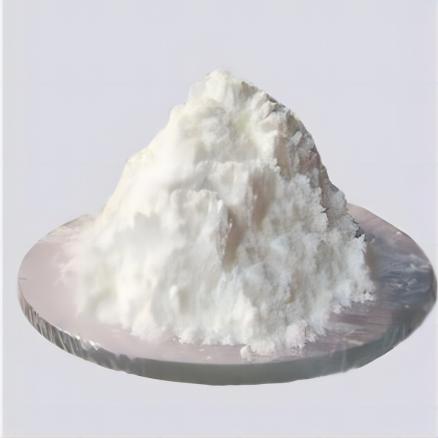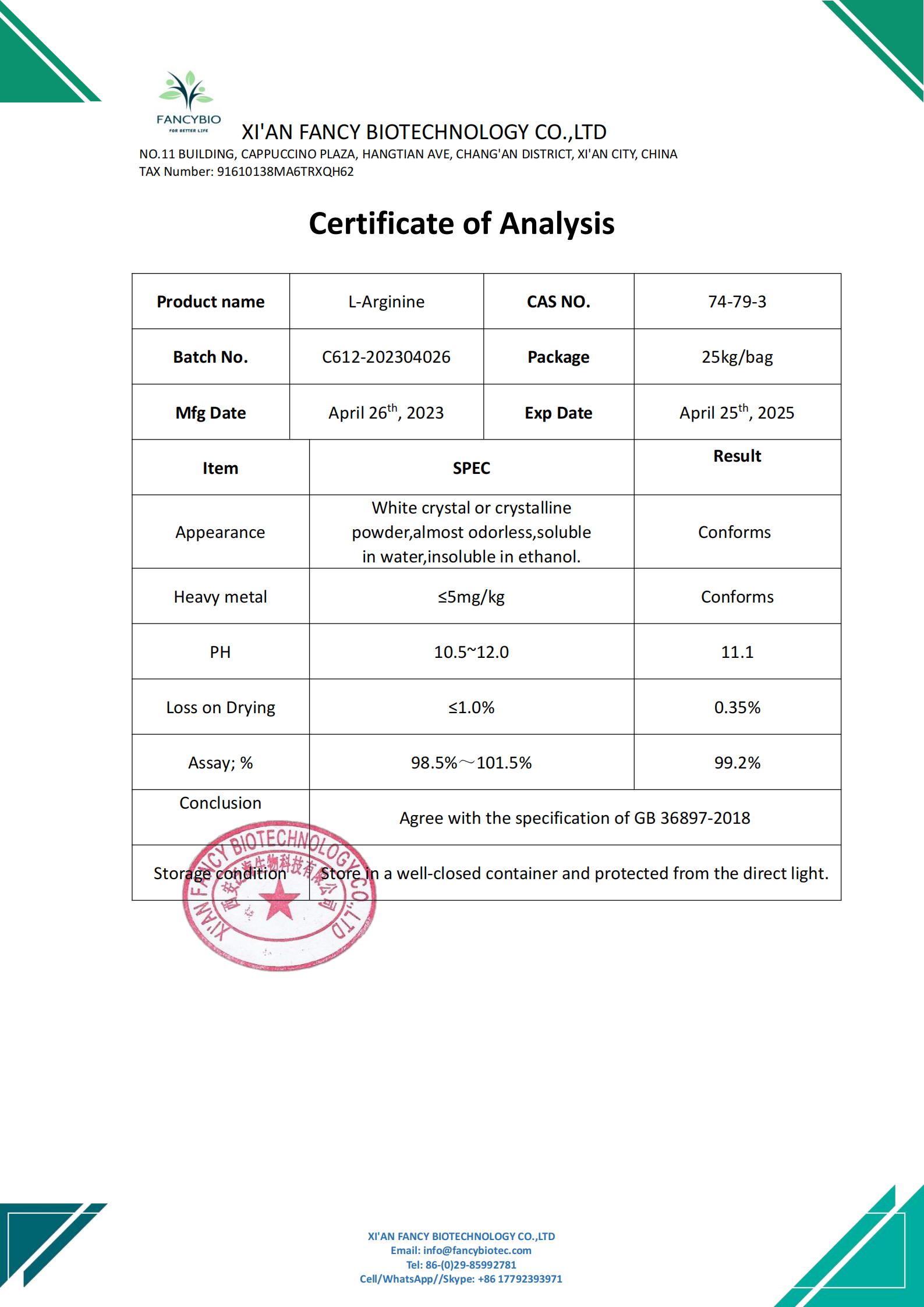L(+)-Arginine, also known simply as Arginine, is an amino acid that plays various important roles in the body.


L(+)-ArginineCAS NO. 74-79-3
L(+)-Arginine, also known simply as Arginine, is an amino acid that plays various important roles in the body.
L(+)-Arginine is a white crystalline powder that is easily soluble in water and has a slightly salty taste. It is an important amino acid that has multiple functions in the human body. Arginine is involved in protein synthesis and is a key component in nitrogen metabolism and the urea cycle. It can also promote the production of nitric oxide, help dilate blood vessels, thereby improving blood circulation, lowering blood pressure, and having a positive effect on cardiovascular health. In addition, arginine helps to enhance immune function, promote wound healing, and help reduce fatigue and improve athletic performance during exercise. It is often used in health products, sports supplements, and medical products, and is suitable for people who need to increase physical strength or support cardiovascular health.
Functions and applications:
1 Amino Acid: L(+)-Arginine is a semi-essential or conditionally essential amino acid, meaning that while the body can typically produce it, there are circumstances where dietary intake becomes necessary, such as during periods of growth, stress, or injury.
2 Precursor to Nitric Oxide (NO): One of the key roles of L(+)-Arginine is its involvement in the production of nitric oxide (NO). Nitric oxide is a gas molecule that acts as a signaling molecule in the body, playing a crucial role in vasodilation, or the relaxation of blood vessels. This leads to improved blood flow and circulation, which is important for cardiovascular health and various physiological processes.
3 Blood Pressure Regulation: Due to its role in nitric oxide production, L(+)-Arginine may help regulate blood pressure by promoting vasodilation and improving blood flow. It has been studied for its potential benefits in lowering blood pressure, particularly in individuals with hypertension or cardiovascular disease.
4 Wound Healing: L(+)-Arginine is involved in various aspects of wound healing, including collagen synthesis, angiogenesis (the formation of new blood vessels), and immune function. It may help promote faster healing of wounds, particularly in individuals with certain medical conditions or undergoing surgery.
5 Immune Function: L(+)-Arginine plays a role in immune function and the production of white blood cells and cytokines, which are essential components of the immune response. It helps support the body's defense against infections and diseases.
6 Protein Synthesis: Like other amino acids, L(+)-Arginine is one of the building blocks of proteins. It is incorporated into proteins during the process of protein synthesis, contributing to the structure and function of various proteins in the body.
7 Urea Cycle: L(+)-Arginine is involved in the urea cycle, which is the process by which ammonia, a toxic byproduct of protein metabolism, is converted into urea and excreted from the body. This helps maintain proper nitrogen balance in the body and prevent ammonia toxicity.

Our professional sales team are waiting for your consultation.